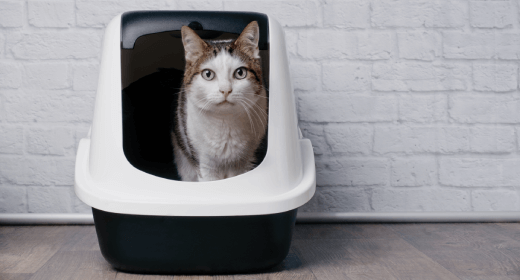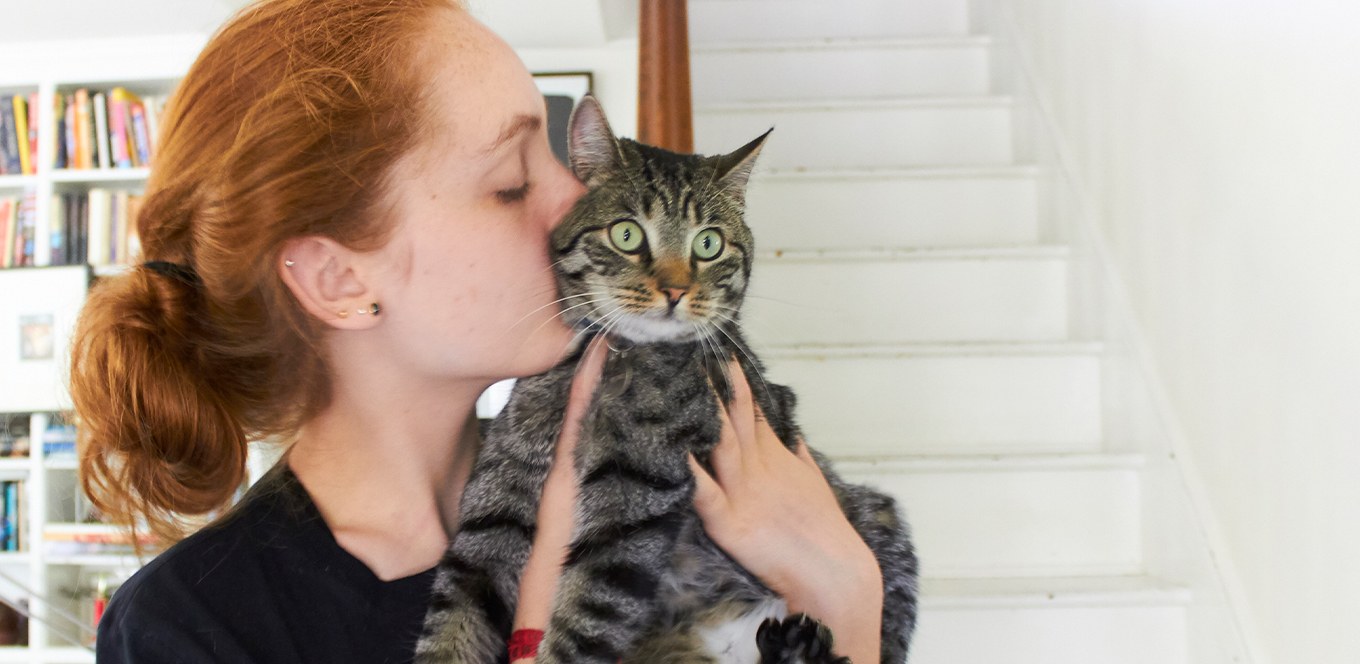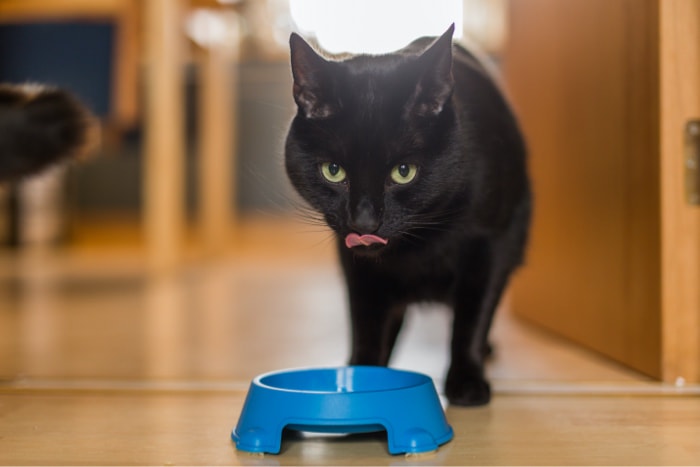

UTI, also known as Urinary Tract Infections, are any infection in the urinary system. Such infections are not common in cats. In fact, not every cat with UTI symptoms has a urinary tract infection. According to NCBI, only one to two percent of cats suffer from urinary tract infections. However, UTIs resemble several other feline diseases; hence, it is imperative to visit a vet for further diagnosis.
Since Urinary Tract Infections can cause severe pain and discomfort, every cat parent must learn about cat UTI symptoms. Here are a few major UTI symptoms in cats:
Blood in the urine
Constant licking of the urinary opening
Crying out while passing urine
Urinating outside the litter box
In order to diagnose UTI in cats, veterinarians first test urine samples. This test helps them detect any bacteria in the urine. Doctors directly draw urine from the bladder with a needle to avoid contamination. Once the urine sample is tested, the vet will then isolate the bacteria to study it further. This step is called the Culture and Sensitivity test. It helps determine the right medicines based on the cat's infection.
First-time infections or acute infections are generally cured using broad-spectrum antibiotics. However, if your cat is suffering from a chronic infection, the vet might recommend additional tests to start bacteria-specific medication.
There are multiple factors that can lead to UTI in cats. Let's explore a few common causes of cat UTI:
Replacement of the urinary catheter
Bladder stone
Issues with the cat's gastrointestinal tract
Although UTI is rare in cats, it's best to take the right measures to prevent it at all costs. Here are a few points on how to prevent UTI in cats:
There are multiple cat UTI home remedies like cranberry juice, apple cider vinegar, bone broth, etc. And most of them are believed to alleviate the symptoms of UTI. However, we do not know if these remedies heal you completely. Hence, it is best to consult a veterinary doctor for cat UTIs. Moreover, in some cases, especially if left untreated, UTIs can be recurrent. The vet will provide the right medication to get rid of the bacteria.
A cat with UTI will exhibit following symptoms:
If you see any of the above symptoms, rush your cat to the doctor.
Certain Urinary Tract Infections can heal on their own. However, to understand whether it's a mild or chronic condition, you must visit your veterinarian. In case it is a chronic case, the doctor will prescribe antibiotics.
Water is essential for cats. Lack of water not only causes dehydration but also Urinary Tract Infections in cats. So, make sure that your fur baby drinks sufficient water throughout the day.
Cats contract Urinary Tract Infections when harmful bacteria enter their bladder. Does that mean cats that live indoors won’t get UTIs? No. Cats make use of a litter box to excrete every day. If you do not clean this box regularly, it can turn into a breeding ground for countless deadly bacteria. Hence, as a cat parent, you must clean the litter box at least twice daily. The bacteria around your cat's feces can enter its urethra every time your fur baby urinates. While this is one of the major causes of UTI in indoor cats, sudden changes in their routine, stress, and poor immunity can also lead to Urinary Tract Infections.




IAMS Cat Food offers chicken as number 1 source to build up cat’s nutrition and immunity
Author: Dr. Cissy Ramos
To help owners better maintain the health and development of their cats, IAMS has developed a line that is uniquely tailored for cats’ needs and has chicken as its number one ingredient. IAMS Cat food includes Taurine as an additional supplement for natural variability and production process.
A study conducted by WALTHAM Centre for Pet Nutrition reports that cats prefer food that is similar to their natural prey such as mice or birds. Likewise, the evolutionary ancestors of cats did not consume fish.
Cats are considered as strict carnivores and they’re still highly related to their ancestors. Their teeth and skull conformation are actually designed to hunt and kill prey efficiently.
In fact, cats are obligate carnivores and they eat meat out of biological necessity. The same study also found that 52% of a cat's calorie intake is from protein, which can be synthesized best through animal-based protein. Therefore, cats require quality protein sources to be included in their diet for sustenance.
Animal-based protein can help cats maintain healthy muscle structures and provide them with natural forms of amino acids. Adding certain sources of protein, especially animal sources, cats can easily process it, break it down, and use it up in their body. Animal sources proteins like chicken can greatly contribute to the quality of protein in their diet and they do get appropriate amount of essential amino acids from it.
In total, cats can internally produce 11 essential amino acids. However, the remaining 11 categories of amino acids can only be provided through a nutritious diet to meet their needs. When you have good quality protein, the cat can receive a good amount of amino acids that are important for its health. The protein from chicken contains multiple levels of essential amino acids, such as Lysine, Phenylalanine, Arginine, and Taurine.
Cats can get a great amount of Lysine from chicken. If there is deficiency in Lysine, the side effects would be low appetite and depression for cats.
Another crucial essential amino acid for cats would be Phenylalanine. If cats have a low amount of Phenylalanine, there are instances that black cats can turn into brown cats because Phenylalanine is in charge of production of melanin for cats. It’s not just for the coloring but that’s the most obvious sign that there’s a deficiency.
Cats need more Taurine compared to other mammals as it supports excellent eyesight. We know for a fact that cats are hunters, and they need good eyesight for that.
Taurine, an especially essential amino acid for cats, is a critical component that supports heart muscle function, vision, digestion, and fetal development. The recommendation of Taurine for cats is around 35 to 55 milligrams of Taurine per kilogram per day. In fact, low levels of Taurine in kittens can lead to blindness, heart failure, congenital defects, and poor immune response.
It is necessary for cat owners to choose a diet that is made by a trusted brand like IAMS: palatable, complete, balanced, contains high quality protein, and enriched with amino acids. This will play a key role for the proper development and normal functioning of cats and enhance their wellness.
The importance of considering the life stage of cats when feeding them is also crucial for cat’s nutrition. With this, IAMS food products offer different varieties of cat foods–dry or wet and for each life stage. For each life stage, there are specific recommendations for the amount to feed and the levels of nutrients that they need.
IAMS cat food is formulated with colostrum and contains DHA found in mother’s milk for kittens cognition, as well as a signature blend of wholesome fiber and FOS natural prebiotic for healthy digestion. IAMS is scientifically proven to help increase the level of Vitamin E in your cat for healthy natural defense.
In addition, IAMS food products can help address specific health concerns in cats. Cats habitually groom themselves and have a tendency to ingest their fur. Of course, the risk of hairball formation is much higher for long-haired cats. Additionally, indoor cats tend to be obese due to overfeeding, inactivity, or sometimes it is simply caused by genetics.
IAMS offers hairball formula which cater to cats in order to reduce the passage of hair in the cat’s digestive tract. . IAMS also offers cat food that is specifically designed for weight management for cats who are obese.
Having protein in your cat’s diet is vital for its overall health and long-term wellbeing. For more information about IAMS Cat visit https://iams.asia/ph. IAMS Cats is available at all leading supermarkets and grocery stores nationwide.